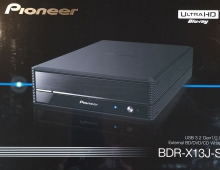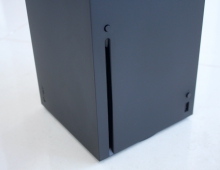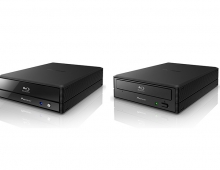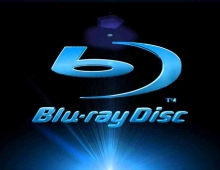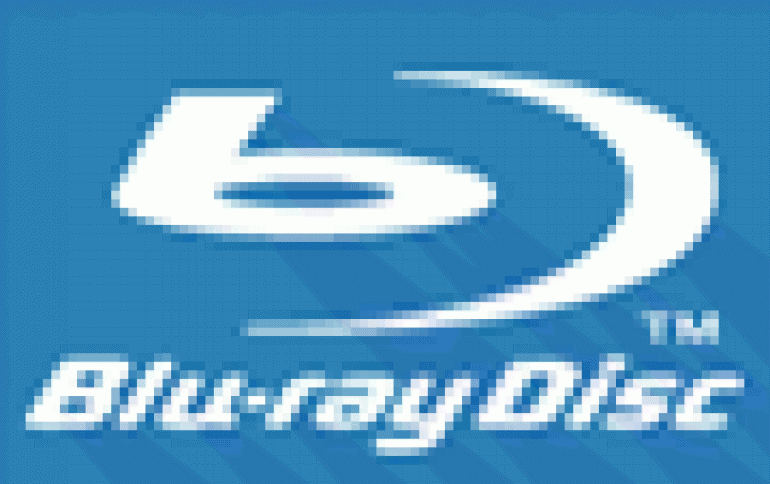
Blu-ray Defends As HD DVD Pressure Mounts
The Blu-Ray camp has defended the Blu-ray DVD format following the news that Intel and Microsoft are putting their considerable weight behind Toshiba's HD-DVD. Sony and Philips representatives believe that there will be 'no impact' from decision by Intel and Microsoft to back rival format.
Sony insisted that there would be "no impact" from Microsoft's and Intel's decision, and that
Blu-ray offered better copyright protection. Sony's spokesmen also pointed out the importance
of Sony's intention to put a Blu-ray player into the forthcoming PlayStation 3 console.
According to Monday's announcements of Intel and Microsoft, the companies have based their decision on specific facts.
Intel focused on the managed copy feature of the HD DVD. According to the company?s announcement, the HD DVD would offer better content protection and control over authorized copies of a legally obtained disc, in order to store the content on a hard drive and stream it to devices around the house. Intel considers this capability an essential for its forthcoming Viiv home entertainment platform.
"Managed Copy is not a function of the optical disc format, but a function of the content protection system. The AACS content protection system, which is used by both Blu-ray Disc and HD-DVD, enables managed copy and network streaming functionality. It is not format specific" said Mr. Frank Simonis, Strategic Marketing Director Philips Optical Storage, commenting on Intel's claim.
Microsoft and Intel also showed their favor to the HD DVD plans to commercialize "hybrid discs", a dual-side disc that can be read in both current DVDs and future players. This could give the chance to Hollywood to release HD content in more "future-proof" and "familiar" environment.
"Blu-ray Disc was the first format to introduce a hybrid disc that could hold both high (25GB) and standard definition (8.5GB) versions of a movie on a single disc. The Blu-ray Hybrid Disc is the more elegant solution as it holds both versions of the film on the same side of the disc, which provides for easy labeling and greater ease of use for consumers" told CDRInfo Mr. Simonis.
The low production costs of the HD DVD media, compared to Blu-ray is also a fact both Microsoft and Intel pointed out. Commenting on the production cost of the Blu-Ray media, Simonis said that Lions Gate, which recently announced their support for Blu-ray, clearly stated that Blu-ray "has the potential to be as inexpensive as DVD in within 3-4 years". Through the announcement, LGHE joined Sony Pictures Home Entertainment, Twentieth Century Fox Home Entertainment and Buena Vista Home Entertainment as studios who have announced their support for the Blu-ray format. Lions Gate Home Entertainment will release content on the new high definition Blu-ray Disc format.
The decision of two major Chinese DVD manufacturers to support the HD DVD format has also been considered as positive by Microsoft and Intel. "The BD Association is an open association, in which the Chinese can join too. There is not any difference over HD DVD. The Chinese community has not made any choice, no matter what the HD DVD camp is stating" said Simonis.
Microsoft also seems to bet on the low replication costs of HD DVD media (HD DVD can be replicated in current DVD replication lines) as well as in the fact that that could offer the consumer a better price for media, compared to the Blu-Ray.
The Redmond based giant has also stated that the HD DVD offers better interactivity standards. Although Microsoft and Disney have jointly developed the iHD interactivity layer, based on XML - which is related to the "Vista" platform and although Disney is a Blu-ray proponent, the Blu-Ray Association chose instead to endorse the BDJ (Java-based) technology.
Analyst firm Gartner predicts that DVD recorders and games consoles will be a major factor in determining the preferred format.
HD-DVD players are expected to be available by end of this year in Japan, and 3-4 months later in the U.S. The first HD DVD recorders will be due in the first half of next year. Sony expects Blu-ray recorders and players to be out in the first half of next year.
In June the HD-DVD camp narrowed the gap between the two specifications by announcing plans for a 45GB triple-layer disc, bringing it closer to the dual-layer 50GB Blu-ray disc under development.
According to Monday's announcements of Intel and Microsoft, the companies have based their decision on specific facts.
Intel focused on the managed copy feature of the HD DVD. According to the company?s announcement, the HD DVD would offer better content protection and control over authorized copies of a legally obtained disc, in order to store the content on a hard drive and stream it to devices around the house. Intel considers this capability an essential for its forthcoming Viiv home entertainment platform.
"Managed Copy is not a function of the optical disc format, but a function of the content protection system. The AACS content protection system, which is used by both Blu-ray Disc and HD-DVD, enables managed copy and network streaming functionality. It is not format specific" said Mr. Frank Simonis, Strategic Marketing Director Philips Optical Storage, commenting on Intel's claim.
Microsoft and Intel also showed their favor to the HD DVD plans to commercialize "hybrid discs", a dual-side disc that can be read in both current DVDs and future players. This could give the chance to Hollywood to release HD content in more "future-proof" and "familiar" environment.
"Blu-ray Disc was the first format to introduce a hybrid disc that could hold both high (25GB) and standard definition (8.5GB) versions of a movie on a single disc. The Blu-ray Hybrid Disc is the more elegant solution as it holds both versions of the film on the same side of the disc, which provides for easy labeling and greater ease of use for consumers" told CDRInfo Mr. Simonis.
The low production costs of the HD DVD media, compared to Blu-ray is also a fact both Microsoft and Intel pointed out. Commenting on the production cost of the Blu-Ray media, Simonis said that Lions Gate, which recently announced their support for Blu-ray, clearly stated that Blu-ray "has the potential to be as inexpensive as DVD in within 3-4 years". Through the announcement, LGHE joined Sony Pictures Home Entertainment, Twentieth Century Fox Home Entertainment and Buena Vista Home Entertainment as studios who have announced their support for the Blu-ray format. Lions Gate Home Entertainment will release content on the new high definition Blu-ray Disc format.
The decision of two major Chinese DVD manufacturers to support the HD DVD format has also been considered as positive by Microsoft and Intel. "The BD Association is an open association, in which the Chinese can join too. There is not any difference over HD DVD. The Chinese community has not made any choice, no matter what the HD DVD camp is stating" said Simonis.
Microsoft also seems to bet on the low replication costs of HD DVD media (HD DVD can be replicated in current DVD replication lines) as well as in the fact that that could offer the consumer a better price for media, compared to the Blu-Ray.
The Redmond based giant has also stated that the HD DVD offers better interactivity standards. Although Microsoft and Disney have jointly developed the iHD interactivity layer, based on XML - which is related to the "Vista" platform and although Disney is a Blu-ray proponent, the Blu-Ray Association chose instead to endorse the BDJ (Java-based) technology.
Analyst firm Gartner predicts that DVD recorders and games consoles will be a major factor in determining the preferred format.
HD-DVD players are expected to be available by end of this year in Japan, and 3-4 months later in the U.S. The first HD DVD recorders will be due in the first half of next year. Sony expects Blu-ray recorders and players to be out in the first half of next year.
In June the HD-DVD camp narrowed the gap between the two specifications by announcing plans for a 45GB triple-layer disc, bringing it closer to the dual-layer 50GB Blu-ray disc under development.


